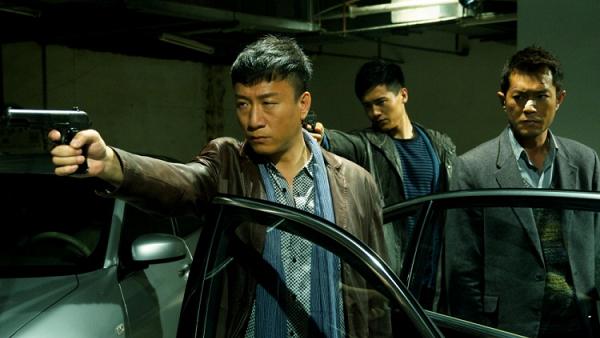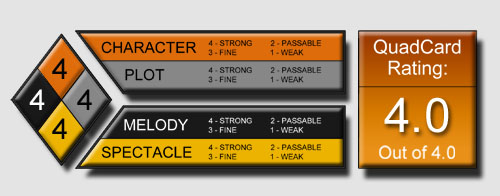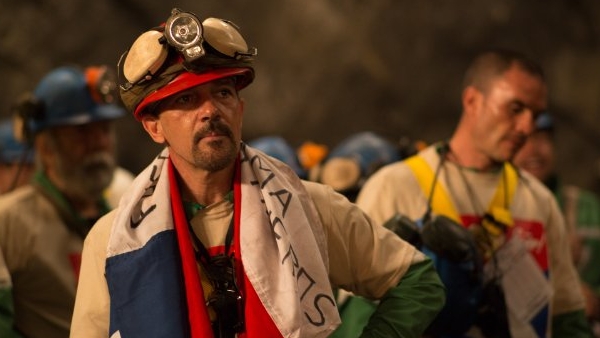
Should Johnnie To’s name hold no special meaning for you, consider correcting that immediately by introducing yourself to the veteran Chinese filmmaker’s work through Drug War. Apart from being handily available through Netflix’s Instant service, the film happens to be great, so strong in fact that it arguably holds a position of high honor in his decades-long career; it’s a combined symbol of his talent and vitality, and one of the most ruthless films of 2013 that you probably missed. (In the interest of full disclosure, I only caught up on Drug War myself following New Year’s, but man do I wish I’d seen it before December’s voting deadline.)
Drug War, lean, muscular, and unforgiving, fits quite snugly into To’s filmography; like many of his more celebrated pictures, it’s a story of cops, robbers, and the fireworks sparked by the explosive confrontations between them. Unlike those past works, though, it was produced in mainland China rather than To’s beloved native Hong Kong. The distinction between the two may be obscured for anybody lacking a baseline knowledge of what separates the one from the other, but the good news is that Drug War doesn’t require an in-depth understanding of Chinese politics or the dividing lines that separate these related yet wholly disparate geopolitical regions. You simply need a mercurial attention span.
Here, we see the unfolding, graceful ballet performed between steely, perpetually disgruntled police captain Zhang (Honglei Sun) and drug lord Timmy Choi (Louis Koo), as the former forces the latter to rat out his colleagues on literal pain of death following a successful bust. Theirs is a carefully played game of chess, one that To builds up over roughly an hour and a half before hitting the detonator in the film’s final act and allowing Drug War to erupt in a hail of gunfire and death; it’s rising tension topped off with ten minutes of jaw-dropping climax, the underlying message of which is subtly disguised beneath a staccato fusillade of bullets and bloodshed.
That, of course, is entirely part of To’s design. While he isn’t playing to a strictly informed or even worldly audience, he does expect that his viewers have endurance enough to stay abreast with his narrative and suss out his social critiques for themselves. Drug War‘s particulars entail precisely what you might expect based on the title; it’s all about China’s own war on narcotics, a conflict the country fights with punitive measures so strict and fierce that they might make your eyes bulge in disbelief. Timmy is out to save his own skin. China favors capital punishment as a penalty for drug trafficking, after all, and he knows that he’s facing the needle if he doesn’t make a deal with Zhang and turn over his compatriots (or figure out a way to off the unyielding lawman in the process).
We learn all of this relative early in Drug War‘s running time, by the way, so To’s willing to at least throw his Western patrons the slimmest of bones. (And besides that, there’s this fabulous thing called Google.) It’s almost a throwaway line, one put out there so casually as to be very nearly dismissive of its own gravity, and yet efficacious at setting up the film’s stakes. Timmy’s fighting for his life, and while he may be on the wrong side of the law, it’s difficult not to feel echoing sympathy for his plight – even as it’s just as easy to remain firmly in Zhang’s camp as he goes to every imaginable length possible to bring Timmy’s fellow kingpins to justice.
Drug War brings To back to basics; it’s a picture that’s as no-frills as they come. Once his plot gets underway, Drug War moves with expert pacing, ratcheting suspense with every frame leading into it’s violent schoolyard finale. Working on the mainland means satisfying censors, though, and so To is unable to glorify the gangland machinations of Timmy’s cohorts per his usual modus operandi. But he doesn’t excoriate them, either. Drug War‘s outlook is blunt and bleak, speaking to the destruction wrought between both factions in the never-ending clash between the police and the pushers.
G-S-T Ruling:
In other words, you won’t see To blatantly decry the nation’s draconian anti-drug protocols once, but his film retains a biting edge of scrutiny regardless. Drug War isn’t just a powerful, smart, thought-provoking piece of cultural commentary, it’s a highly refined piece of crime cinema, one that manages to be thoroughly austere despite outside influences; it’s harsh, frank, and outright mean in ways many contemporary films fixated on similar subject matter. Nobody makes it out of a drug war unscathed, To says in his fashion, though perhaps moreso than that bit of wisdom, the greater takeaway here is that To still has a movie like this in him after such a long and fruitful career. We should be so lucky that he has any more.




